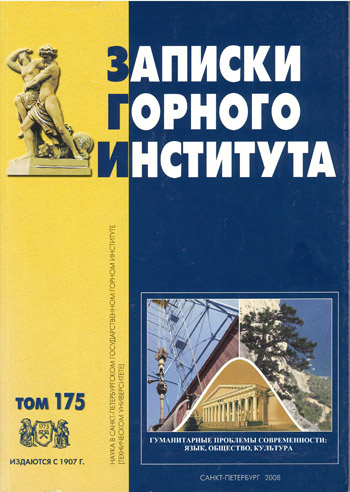Word combinations in the composition of «computer» language
Authors:
About authors
- St. Petersburg State Electrotechnical University
Abstract
Some semantic and grammar peculiarities of compound terminology in special computer vocabulary are considered. It is important that in spite of being rather «narrow specialized», the vocabulary in question had been formed in accordance with the modern Russian language rules and by its useful semantic and grammar models.
Область исследования:
(Archived) Russian language: modern linguistic research
Similar articles
Means of realization of author's perspective in publicistic texts (on the example of Karl Kraus's texts)
2008 Yu. M. Sishchuk
Specificity of teaching a foreign language as a means of intercultural communication to students of non-language specialties
2008 K. S. Shtykhina
